We’re excited to welcome Matias Bernal, Ph.D., to Community Vision as our new Vice President of Development. In this role, Matias will provide strategic leadership over Community Vision’s resource development, capitalization, and marketing and communications work.
Matias brings more than 15 years of experience in nonprofit leadership, with a deep commitment to social justice and community-centered work. Over the course of his career, he has held a variety of leadership roles across sectors—most recently serving as Director of Development at the California Immigrant Policy Center. Matias has led teams both large and small, always with a focus on equity, inclusion, and long-term impact.
In this Q&A, Matias reflects on what brought him to Community Vision, what excites him about this role, and what he’s looking forward to in this next chapter.
Q: Can you share a little bit about what’s shaped your journey that’s led to this moment?
Absolutely. Ever since I graduated from undergrad, I’ve devoted myself to community-based organizations that were mission-aligned with the work I care about—starting with supporting survivors of violence and mental health work. I began as a clinician and became a licensed therapist. After a while, I realized that my greatest strength was problem-solving at a systems level, and so I shifted into more management and leadership roles.
Over time, I’ve supported adults with developmental disabilities, people who’ve experienced violence, and most recently, our immigrant communities. Every organization I’ve joined has shaped how I see the world and the people we serve. While each one had its own mission, they all shared the goal of overcoming barriers and systemic oppression to build pathways forward. That’s very much aligned with Community Vision—and being part of this organization allows me to help others cement their work and build the foundation they need to continue.
Q: When you first learned about Community Vision, what stood out to you?
What really motivated me was how Community Vision supports organizations in institutionalizing their work—helping them secure the sustainability to move forward. It’s not just about buying a building or office; it’s about investing in a legacy that empowers them to continue their mission.
Another big draw for me is the fundraising for this type of work. We’re not just asking for dollars—we’re inviting people to invest in transformation. People aren’t just giving to us, they’re investing in work that supports and strengthens other organizations. That’s the most transformative kind of work I can imagine doing.
Q: What drew you to this role in particular, and why now?
It wasn’t an easy decision. I’ve been doing statewide policy work to support immigrant communities—something very personal to me as a DACA recipient. But I felt the impact I could have in this role, at this moment, would build on that work in a more immediate and direct way.
Statewide advocacy and policy work is critical, but the impact can take years. At Community Vision, we’re doing work today—creating real-time transformation on the ground. That was powerful for me. Plus, throughout the interview process, I felt how intentional everything was—from the job description to every conversation. It all felt aligned with how I like to operate, and I thought, “This is meant to be.”
Q: What are you looking forward to in your role as Vice President of Development?
First, I want to wrap my arms around the organization—really understand how things work internally. The better I understand our internal systems, goals, and day-to-day operations, the more effectively I can steward relationships with our external partners and tell Community Vision’s story in a compelling, grounded way.
I’m also excited to expand Community Vision’s reach. I’ve lived in the Central Valley, the Central Coast, and the Eastern Sierras—and I know there’s a real need for the kind of support Community Vision offers. I’m looking forward to connecting with current service providers in those regions and helping them realize their potential to own property, build equity, and strengthen their missions.
Q: What does “community” mean to you, and how does that shape how you do this work?
To me, community is people from different backgrounds and walks of life who choose to come together. In places I’ve worked, it’s often the mission that brings people in. Here, it feels like it’s also about the impact—bringing together stakeholders from philanthropy, state government, and grassroots organizations. That coming together is powerful.
Even if we have different missions, we’re united by shared experiences and a common goal. That’s what shapes how I approach this work—focusing on unity and collective movement forward.
Q: What’s bringing you joy or keeping you grounded as you begin this new chapter?
The sense of excitement in getting to know everyone. Every interaction I’ve had so far has been so welcoming and positive. That kind of energy isn’t always easy to find, even in amazing organizations.
What also grounds me are my internal roots—my family, my circle of friends, and my community here in Fresno—and making sure that I am engaging and living in joy. That’s part of our resistance, too—maintaining joy and balance in hard times.
Finally, I’ve been thinking a lot about how we meet this moment with intention and ensure history doesn’t repeat itself. The systems change work—addressing immediate harm while building structures that prevent it in the future—is what drives me most.
We are thrilled to have Matias on our team. Please join us in giving him a warm welcome to Community Vision!
About Matias Bernal
Matias Bernal is a nonprofit leader with more than 15 years of experience working for social justice, immigrant rights, and community development in California. As a queer Latino and immigrant, Matias has dedicated his career to expanding opportunities for communities that are often left out, including immigrants, LGBTQ+ people, farmworkers, and rural residents.
He earned a Ph.D. in Organizational Psychology from UC Irvine, along with graduate degrees in Criminology and Psychology and multiple bachelor’s degrees from Fresno State.
Matias has worked on efforts ranging from violence prevention and disability rights to economic opportunity and leadership development. Growing up in the Central Valley, he brings the perspective of communities that are too often overlooked in statewide conversations. He uses that experience to lift up regional voices, connect communities across California, and mentor the next generation of leaders.

